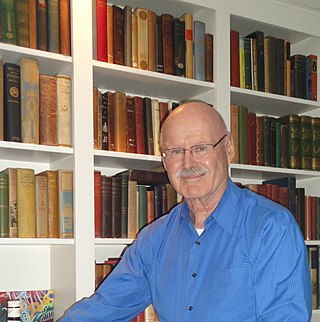
Hinduism has been found in the Middle East since the early 16th century. Millions of members of the Indian diaspora, of different religions, reside and work in Arab states of the Persian Gulf; many of them are Hindu. Many came due to the migration of Indians and Nepalese expatriates and employees to the area around the Persian Gulf.

Middle Eastern studies is a name given to a number of academic programs associated with the study of the history, culture, politics, economies, and geography of the Middle East, an area that is generally interpreted to cover a range of nations including Egypt, Iran, Iraq, Israel, Jordan, Lebanon, Oman, Palestine, Saudi Arabia, Syria, Turkey, and Yemen. It is considered a form of area studies, taking an overtly interdisciplinary approach to the study of a region. In this sense Middle Eastern studies is a far broader and less traditional field than classical Islamic studies.

The Middle East and North Africa (MENA), also referred to as West Asia and North Africa (WANA) or South West Asia and North Africa (SWANA), is a geographic region which comprises the Middle East and North Africa together. However, it is widely considered to be a more defined and apolitical alternative to the concept of the Greater Middle East, which comprises the bulk of the Muslim world. The region has no standardized definition and groupings may vary, but the term typically includes countries like Algeria, Bahrain, Egypt, Jordan, Kuwait, Lebanon, Libya, Morocco, Oman, Qatar, Saudi Arabia, Syria, Tunisia, the UAE, and Yemen.

South Arabia is a historical region that consists of the southern region of the Arabian Peninsula in Western Asia, mainly centered in what is now the Republic of Yemen, yet it has also historically included Najran, Jizan, Al-Bahah, and 'Asir, which are presently in Saudi Arabia, and Dhofar of present-day Oman.

The Arab states of the Persian Gulf or the Arab Gulf states refers to a group of Arab states bordering the Persian Gulf. There are seven member states of the Arab League in the region: Bahrain, Kuwait, Iraq, Oman, Qatar, Saudi Arabia, and the United Arab Emirates. Yemen is bound to the six countries of the Gulf Cooperation Council, based on history and culture.

Al Buraimi Governorate is one of the 11 governorates of Oman. The area was part of Ad Dhahirah Region until October 2006, when a new governorate was created from the Wilayats (Provinces) of Al Buraymi and Mahdah. A third wilayat, As-Sunaynah, was created from parts of the two. Dr. Hamad bin Ahmed Al Busaidi has been governor since 2020.
Islam is historically divided into two major sects, Sunni and Shia Islam, each with its own sub-sects. Large numbers of Shia Arab Muslims live in some Arab countries including Lebanon, Yemen, Bahrain, Iraq, Saudi Arabia, Kuwait, Oman, the UAE, and Qatar.
Joseph Albert Kéchichian is a political scientist.

Halim Barakat was a Syrian American novelist and sociologist. He was born into a Greek-Orthodox Arab family in Kafroun, Syria, and raised in Beirut.

Bangladeshis in the Middle East, form the largest part of the worldwide Bangladeshi diaspora. Although Bangladesh only came into existence in 1971, the land of East Bengal which is today Bangladesh has strong ties to the Middle East. Out of the 13 Million Bangladeshis abroad approximately 8 million live within the Middle East, with 2.5 million in Saudi Arabia and a 1 million of them in the United Arab Emirates. Bangladeshis who come to the Middle East are primarily guest workers or day labourers. Bangladesh is one of the largest labour suppliers to Saudi Arabia. In 2007, Bangladeshi workers obtained the biggest share, with 23.50 per cent of the 1.5 million Saudi Arabia visas issued.
The Palestine Center is an independent educational program based in Foggy Bottom, Washington, D.C. Their focus is on the Israeli–Palestinian conflict and other Middle East issues.
Hisham Sharabi was Professor Emeritus of History and Umar al-Mukhtar Chair of Arab Culture at Georgetown University, where he was a specialist in European intellectual history and social thought. He died of cancer at the American University of Beirut hospital on January 13, 2005.

Arab News is an English-language daily newspaper published in Saudi Arabia. It is published from Riyadh. The target audiences of the paper, which is published in broadsheet format, are businessmen, executives and diplomats.
The Palestinian Centre for the Study of Nonviolence (PCSN) was founded in 1983 by Mubarak Awad, a Palestinian-American psychologist, and an advocate of nonviolent resistance.

Oman–Yemen relations refer to bilateral relations between the southern Peninsular Arab nations of Oman and Yemen. The two countries share a 294 km border. Both Oman and Yemen were part of the Persian Empire, and later the Umayyad and Abbasid caliphates. Yemen has an embassy in Muscat. Oman has an embassy in Sana'a. Both countries are members of the Arab League and Organisation of Islamic Cooperation.

Michael Craig Hudson was an American political scientist, the director of the Middle East Institute and professor of political science at the National University of Singapore. He was also professor emeritus at Georgetown University, where he was professor of international relations since 1979 and Saif Ghobash Professor of Arab Studies since 1980 in the Edmund A. Walsh School of Foreign Service. While at Georgetown, Hudson served as director of the Center for Contemporary Arab Studies intermittently for over twenty years, most recently from 2007 to 2010.
The Arab Barometer is a nonpartisan research network that provides insight into the social, political, and economic attitudes and values of ordinary citizens across the Arab world. It has been conducting public opinion surveys in the Middle East and North Africa (MENA) since 2006. It is the largest repository of publicly available data on the views of men and women in the MENA region. The project has conducted more than 70,000 interviews over five waves of surveys across 15 countries in MENA since 2006. The project is organized through a partnership between Princeton University, the University of Michigan, and regional partners across the Middle East and North Africa. The project is governed by a Steering Committee including academics and researchers from MENA and the United States.

Susan L. Ziadeh is a member of the Middle East Institute’s Board of Governors who served as the U.S. Ambassador to Qatar from 2011 to 2014. Her rank was as a career member of the Senior Foreign Service, class of Minister-Counselor.

The Saudi Arabia–United Arab Emirates border is 457 km (284 mi) in length and runs from the Persian Gulf coast in the west to the tripoint with Oman in the east.
Jihad Al-Khazen is a Palestinian journalist and writer with Lebanese citizenship. He previously held posts as the editor-in-chief of The Daily Star in Beirut, Arab News in Jeddah, Middle East and Life in London.













